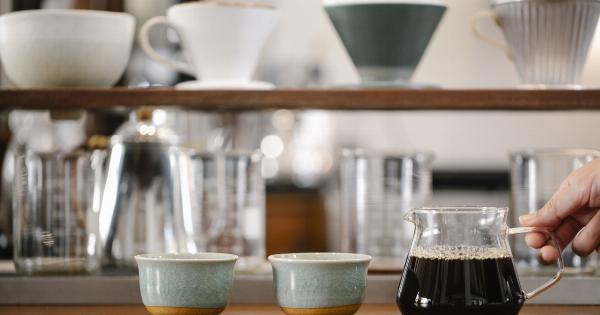Coffee is one of the most popular beverages in the world, enjoyed by millions of people every day. It’s a source of energy, an excuse to take a break from work, and a great way to socialize with friends and family.
But how much coffee is the right amount? Is there such a thing as too much coffee? In this article, we’ll take a closer look at the effects of caffeine on the body, how much coffee is safe to drink, and the best time to drink it.
The Effects of Caffeine on the Body
Caffeine is a natural stimulant found in coffee, tea, and many other beverages and foods. It works by blocking the action of a neurotransmitter called adenosine, which promotes sleep and suppresses arousal.
When adenosine is blocked, the levels of other neurotransmitters such as dopamine and norepinephrine increase, leading to alertness, improved mood, and enhanced cognitive function.
However, caffeine also has some negative effects on the body. It can cause nervousness, restlessness, and insomnia, especially when consumed in large amounts or late in the day.
In addition, caffeine can increase heart rate and blood pressure, and may worsen symptoms of anxiety and depression.
How Much Coffee is Safe to Drink?
The amount of coffee that is safe to drink varies depending on the individual and their tolerance to caffeine. The general recommendation is to consume no more than 400 mg of caffeine per day, which is roughly equivalent to four cups of coffee.
However, some people may feel jittery or anxious after just one cup, while others can handle more than the recommended amount without any problems.
It’s also important to consider the size of the cup and the strength of the coffee. A standard cup of coffee is usually defined as 8 ounces, but many coffee shops and restaurants serve much larger sizes.
In addition, some types of coffee, such as espresso or cold brew, may contain more caffeine per ounce than regular drip coffee. To be safe, it’s a good idea to keep track of how much caffeine you’re getting from all sources, including coffee, tea, soda, and chocolate.
The Best Time to Drink Coffee
The best time to drink coffee depends on your individual needs and preferences. Many people enjoy a cup of coffee in the morning to help them wake up and start the day.
This is because cortisol levels, which are highest in the morning, are also known to be increased by caffeine. However, if you’re sensitive to caffeine or prone to anxiety, it’s best to limit your intake in the morning and opt for decaf or herbal tea instead.
Some people also enjoy a cup of coffee in the afternoon as a pick-me-up or to help them stay alert during long work or study sessions.
However, be careful not to consume too much caffeine too late in the day, as this can interfere with sleep and make it harder to fall asleep at night.
The Bottom Line
Coffee can be a healthy and enjoyable part of a balanced diet, as long as it’s consumed in moderation and at the right time.
The general recommendation is to consume no more than 400 mg of caffeine per day, which is roughly equivalent to four cups of coffee. However, it’s important to consider individual tolerance and be aware of the size and strength of your coffee. Additionally, it’s best to avoid consuming caffeine late in the day, especially if you’re sensitive to its effects on sleep.































